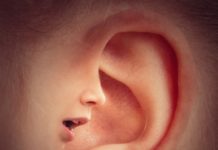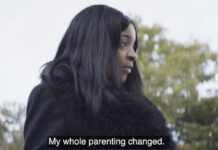Dear Boston Globe, Part V: Thanks for Nothing
A final response to the Boston Globe's Spotlight on Mental Health series, including a review of their last three installments in addition to their most recent, the dubiously titled “Solutions.”
And Now for Something Completely the Same: The Latest, Greatest Breakthrough in Understanding the...
Another scientific study that ostensibly identifies a biological cause of schizophrenia has appeared and is being widely reported. So, we finally have the elusive breakthrough to understanding the biological basis of schizophrenia. Or do we? A close look at the source of all this hyperbolic language raises serious questions about such enthusiasm.
Please Stop Saying Depression Is Like Diabetes
It seems more and more common for people who consider themselves mental health advocates to make the argument that “mental illness is like physical illness.” Have you heard this “depression is like diabetes” tactic? I have a hard time seeing how this is advocating for those in emotional distress.
The Sociological Study of Mental Illness: A Historical Perspective
Mental illness, as the eminent historian of psychiatry Michael MacDonald once aptly remarked, “is the most solitary of afflictions to the people who experience it; but it is the most social of maladies to those who observe its effects.” It is precisely the many social and cultural dimensions of mental illness, of course, that have made the subject of such compelling interest to sociologists. How, for example, are we to define and draw boundaries around mental illness, and to distinguish it from eccentricity or mere idiosyncrasy, to draw the line between madness and malingering, mental disturbance and religious inspiration? Who has social warrant to make such decisions, and why?
With the Launch of Mad in Denmark, a Global Network for Radical Change Grows...
Mad in Denmark, which is newly launched, is the 11th affiliate in the MIA network, and three others are expected to launch later this year.
Leading Psychiatrists Follow Top-Dog Bankers’ Guide to Career Advancement
A career update for members of the “Psychiatry Hall of Shame,” including the group excoriated in the 2008 Congressional investigations, and another psychiatrist who conducted studies aimed at inducing psychosis—experiments that appeared to run counter to the Nuremberg Code of research ethics.
The Can Collector’s Club: Clarifying Where Mental Health Begins
In 1980, my father started the Can Collector’s Club (CCC). I was 2 years old. As the story goes, it was my mother’s brainchild, but dad quickly took ahold of the idea with his entrepreneurial spirit. Some people thought he had lost his mind. Some still do. But the purpose of the CCC was simple. Convince family and friends to turn aluminum cans into him so that he could use the money from recycling to support our college fund. And clean up the environment.
Why Do Only Some People Experience Severe Antidepressant Withdrawal?
Much of the vulnerability to antidepressant withdrawal may be related not to bipolar disorder, but a trait called “bipolarity.”
Schizophrenia Genetic Research – Running on Empty
The time has come to halt the massive failure that has characterized schizophrenia molecular genetic research, and to thoroughly reassess what critics have always said are the severely flawed family, twin, and adoption studies that inspired and helped justify this research.
Don’t Call Me a Therapist
Psychology is closer to philosophy than medicine, laying a foundation for personal development that can lead to better adaptation.
The Persecution of Heretics
Behind the apparent Biblical Authority of the Clinical Trial Literature in medicine lies an Inquisitional-like apparatus run by company PR agencies and agencies whose job it is to manage the perception of science - linking in academics - aimed at silencing dissent and ensuring that prescribing doctors continue to prescribe. It focusses most clearly on anyone who suggests that a brand-name drug might have significant adverse events.
The Dangers of Precision Medicine: Mental Health Is Not a Battlefield
Rather than a war to be fought within individuals, we should envision mental health as a garden to be carefully nurtured.
“I Love My Diagnosis”: The Benefits of Mental Illness
What inherent benefits may exist for identifying oneself as mentally ill? Many patients actually hope for a diagnosis. Once granted that special status, they then inform everyone around them—friends, family, the HR department—so that everyone can get on board and act accordingly, altering any expectations they might otherwise have for this person.
The Secret to Psychiatry’s “Success,” as Revealed by a Psychiatrist
Pills can’t be the main source of psychiatry’s sustained success, since they’re mostly placebos and people who take them usually worsen over time. Could psychiatry’s newly invented diseases themselves be the hot items that people are being manipulated into buying? Yes — I saw from within my field how it happened.
E. Fuller Torrey’s Review of Anatomy of an Epidemic: What Does It Reveal About...
E. Fuller Torrey, through his Treatment Advocacy Center, is the country’s most prominent advocate for outpatient commitment laws, which typically force people with a...
Have You Ever Taken an Experimental Antipsychotic Called Bifeprunox?
In 2004, a patient was given an experimental antipsychotic called bifeprunox and died of hepatorenal failure nine days later. But the sponsor apparently did not investigate the death for three years. In late 2007 the sponsor issued a safety alert and suspended all bifeprunox studies. This is where things get interesting.
Talking About Psych Diagnoses and Drugs: A Primer for Parents & Professionals
It is important to tell parents the truth about what can and cannot be known about their child. In this way, people come to appreciate that labels and treatments offered by psychiatric professionals are far from being grounded in hard science.
Schizophrenia and Genetics: A Closer Look at the Evidence
“The substantial hereditary component in schizophrenia,” a pair of researchers wrote in 1993, “is surely one of the two or three best-established facts in psychiatry.” But is it really? For mainstream psychiatry and psychiatric genetics, schizophrenia is “a severe mental disorder with a lifetime risk of about 1%, characterized by hallucinations, delusions and cognitive deficits, with heritability estimated at up to 80%,” or a “highly heritable neuropsychiatric disorder of complex genetic etiology.” Many commentators have challenged these claims, and some have challenged the concept of schizophrenia itself.
Opening the Door to a New Year: Some Christmas Thoughts and Wishes
So many people are feeling so hopeless these days. Sometimes I think twice before I turn on the radio. I don’t want to be reminded of all those being abandoned to their fate, in Aleppo and Mosul as well as other places ravaged by drought, famine and war. But the darkest stories are bearable if there is some ray of light at the end.
Pathways to Enhance Well-Being: Free Resource on Alternative Wellness Practices
This week we e-release a new free booklet, Pathways to Enhance Well-Being. Its creation began with my colleague Linda Lentini sharing with me some of the barriers she experienced as she moved towards bringing alternative approaches such as meditation and breath practices into state psychiatric institutions.
Is Binge Eating Disorder Just Another Made-Up Disease?
If a person binges habitually, upon sensing certain stimuli the pancreas prepares the body with insulin, and simultaneously, the stomach prepares by getting more acidic. This means that for many of us, the drive to binge is a physical need. Therapy blames the patient for “bad coping” when all she is doing is responding to her body's signals.
Psychiatry’s Thalidomide Moment
The authors of Study 329 began recruiting adolescents for a comparative study of Paxil, imipramine and placebo in 1994 and finished their investigations in 1997. They dropped a large number of their original cohort, so the randomness element in the study must be open to question. Late in 1998, SmithKline Beecham, the marketers of Paxil, acknowledged in an internal document that the study had shown that Paxil didn’t work for adolescents in terms of the two primary and six secondary outcomes they had established at the start of the study. In a nutshell, Study 329 was negative for efficacy and positive for harm, contrary to their succinct upbeat conclusion.
The Future of Mental Health Interview Series, Part II
The Future of Mental Health interview series continues with interviews this past week with James Maddux (on positive clinical psychology), Lucy Johnstone (on critical psychiatry and psychological formulation), Michael Cornwall (on being present to “madness”), Monica Cassani (on beyond meds: everything matters), Tim Carey (on parenting skills and family mental health) and Sharna Olfman (on the science and pseudoscience of children’s mental health. Here some highlights...
ADHD as Cargo Cult Science
Barkley’s theory on ADHD was akin to what Richard Feynman called “Cargo Cult Science,” only more misleading and dangerous. In contrast, there is no evidence of brain abnormality in ADHD. The airplanes have not landed, nor are they likely to.
Screen Time for Children Under Three: A Trigger for Virtual Autism?
"A Stone Unturned" weaves together the research and stories of autism symptoms reversed by removing screens and adding more parent engagement.

























